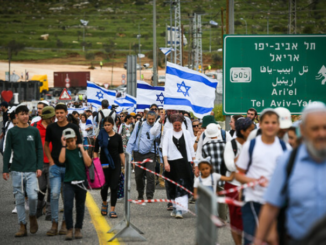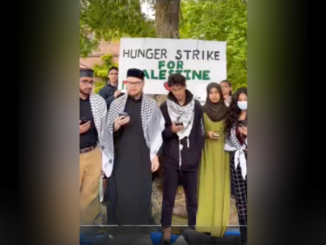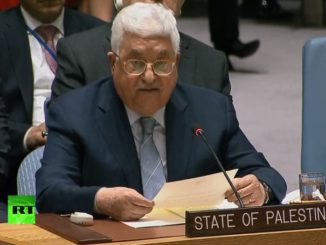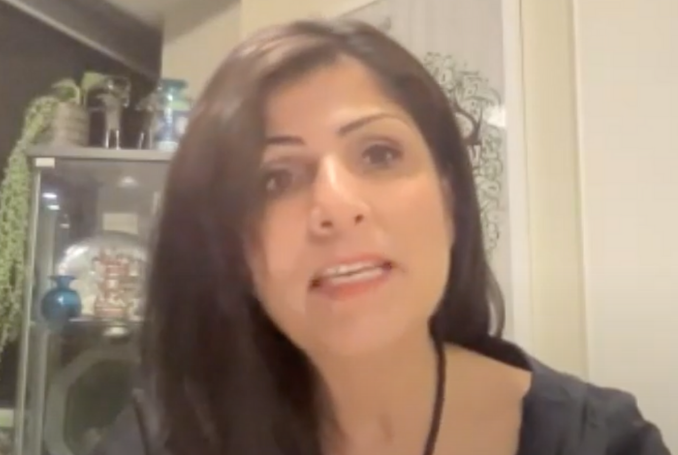
By Romana Rubeo 
The Jordanian branch of the McGill Alumni Association organized a webinar on February 13, to discuss the upcoming book ‘Our Vision for Liberation: Engaged Palestinian Leaders and Intellectuals Speak Out’, co-edited by Professor Ilan Pappé and Dr. Ramzy Baroud.
This collection of nearly 30 essays is not intended to analyze possible “solutions”, or to merely cater to the sensibilities of mainstream Western audience and academia with a stifling debate on Palestine; instead, it is intended to set a path forward towards Palestinian liberation.
The title is already indicative of a challenging, unapologetically, even revolutionary work.
The two editors, Pappé and Baroud, have called on nearly 30 Palestinian intellectuals and leaders to express their own vision for liberation, not in the form of an elitist, purely academic debate but as a result of their experience as organic activists, who have dedicated their entire life to serving the Palestinian cause.
Dr. Ramzy Baroud, co-editor of the book, and two contributors, Dr. Ghada Ageel and Dr. Samah Sabawi, took part in the webinar.
When asked about what was the original idea behind the book and what kind of contribution can it offer to the Palestinian issue, Dr. Baroud said that it was important to convey a modern concept of liberation in Palestine at the moment.
“It is time for us to narrate Palestinian priorities to reclaim the Palestinian narrative and to push forward new ideas,” Baroud said.
Dr. Ghada Ageel’s chapter in the book is entitled ‘Next Year in Beit Daras’. It is crucial to understand the Palestinian Right of Return, not only from a legal and humanitarian point of view, but from a personal, more intimate perspective.
“We are political and social creatures who are able to tell stories,” Dr. Ageel said. “Stories are the basic foundations of learning, and they can offer visions, as in the book (Our Vision for Liberation).”
“Through our stories and through narrative, we can expose stories of oppression and discrimination; we can learn, we can educate, we can organize, we can campaign, and we can change. And we can definitely put demands on the table, we can claim rights.”
The ‘Beit Daras’ in Ageel’s chapter is not only a physical place, which existed and was destroyed by Israel during the Nakba (catastrophe) of 1948; it is also a place of the heart, and a symbol of something bigger.
“We were denied the right to learn or read or possess anything related to Palestine, or Beit Daras, or our history. So, to fill this historical gap, my grandmother stepped in to make sure that Beit Daras is not exiled from human memory and from human history. She wanted to be sure that we, generation Nakba, had Beit Daras in our lives, in our hearts.”
Palestinian writer and scholar Dr. Samah Sabawi’s chapter in the book is entitled Writing in Blank Spaces, and it is an amazing and painful journey in a land where Zionist settler colonialism meets with Australian settler colonialism, where Sabawi also reflects on the trauma of exile and ponders on the concept of post-memory.
“Times have changed,” Sabawi stated, “and the hunger for the Palestinian narrative is growing every day and people are far more courageous today than they ever were to provide these spaces for us. There is still a long way before but we have already gone a long long way from where we were before.”
“My chapter addresses themes of trauma, post-memory and how our identities are often shaped by the experience of exile, by the guilt of being on the outside, watching,” Sabawi said, adding:
“The book ‘Our Vision for Liberation’ has asked us more than just share our personal story. It actually demanded that we go further and that we share our vision for liberation and that’s quite significant. It really gave me great joy to see that, as I read other chapters, I found that I was not alone, that my vision is that of many of our intellectuals. This tapestry of diverse experiences, they all led to a unified vision.”
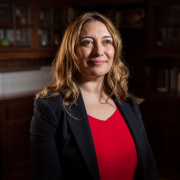
– Romana Rubeo is an Italian writer and the managing editor of The Palestine Chronicle. Her articles appeared in many online newspapers and academic journals. She holds a Master’s Degree in Foreign Languages and Literature and specializes in audio-visual and journalism translation.

